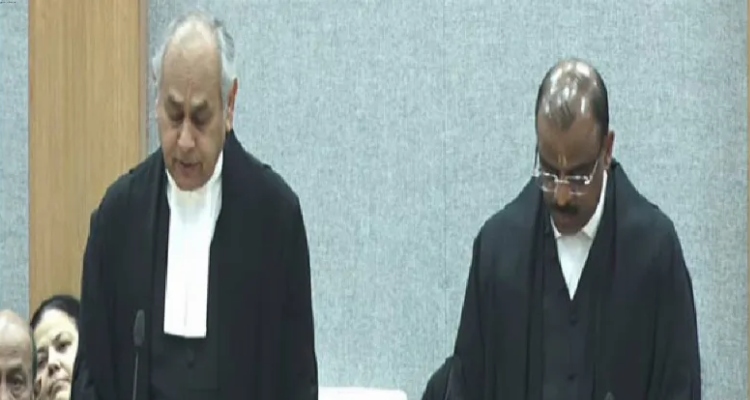
Two new judges, Justices Ajay Digpaul and Harish Vaidyanathan Shankar, were sworn in at the Delhi High Court on Wednesday, raising the total number of judges to 37.
Despite this addition, the court continues to operate with a significant shortfall, as its sanctioned strength is 60.
Acting Chief Justice Vibhu Bhakru administered the oath during a ceremony held on the court premises, attended by fellow judges and members of the legal fraternity. The appointments, officially notified by the Ministry of Law and Justice on January 6, 2024, mark a step toward addressing the judicial vacancies.
Union Law Minister Arjun Ram Meghwal shared the news of the appointments on social media platform X, stating: “In exercise of the power conferred by the Constitution of India, the President of India, after consultation with the Chief Justice of India, is pleased to appoint the following as judges. I convey my best wishes to them.”
The appointments of two other advocates, Shwetasree Majumdar and Tejas Karia, recommended by the Supreme Court Collegium in August 2024, are still pending approval from the Centre.
The Collegium, in its resolution, endorsed Ajay Digpaul based on a positive opinion from the consultee judge and feedback from the Department of Justice, which highlighted his professional competence and integrity. With 31 years of extensive legal experience, Digpaul has expertise in civil, criminal, constitutional, labour, and commercial law, among other areas. His involvement in 42 reported High Court judgments further underscores his credentials.
Regarding Harish Vaidyanathan Shankar, the Collegium noted a similarly positive evaluation from the consultee judge and the Department of Justice. Vaidyanathan’s legal practice is reflected in 180 reported judgments, showcasing his depth of experience. Over the past five years, his average annual professional income was Rs. 162.16 lakhs. Based on these qualifications, the Collegium found him fit for the High Court bench.
While these appointments strengthen the Delhi High Court, the pending approval of other recommended names highlights the need for continued efforts to fill judicial vacancies and address the court’s growing caseload.




